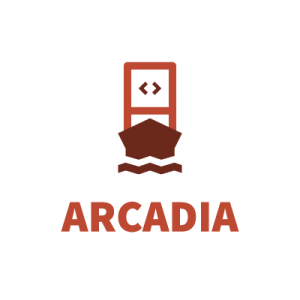Published on 31/01/2022

The ARCADIA framework is a novel reconfigurable-by-design Highly Distributed Applications (HDA) development paradigm. It takes care of multi-infrastructure deployment, high availability requirements and automatic real-time reconfiguration of applications. To solve such issues, ARCADIA applications are based on a micro-service architecture and are governed by a sophisticated policy manager. In other words, each ARCADIA application consists of several autonomous components, which can communicate with each other based on a service graph and policy rules defined by the developers. Each component can be stored in a public or private registry on the ARCADIA platform and it can be re-used on other applications.
Objective
ARCADIA’s reference implementation and developed toolkits facilitate application developers to design and create infrastructural-agnostic applications and lead to the evolvement of innovative paradigms for the deployment of advanced applications, boosting in this way the productivity of developers as well as the competitiveness of the EU software development industry.
Use cases/verticals
The heart of the framework is the Smart Controller, which is the most sophisticated module and whose responsibilities include, among others, network management, policy enforcement and annotation processing. It contains several sub-modules that are important for many aspects of the applications life-cycle from the development to monitoring and reconfiguration. Starting from the development, Smart Controller is responsible for interpretation of annotation usage in a component, finding and deploying the required dependencies of a component and finally generating the unikernel which is the purposed-build virtual machine image for cloud deployment. Smart Controller is infrastructure agnostic and can deploy applications on different infrastructure providers according to the policies defined by the developers. Moreover, by monitoring the components, Smart Controller is responsible for scaling and reconfiguring the application with complex optimization algorithms.
WINGS involvement
WINGS ICT Solutions is leading the 4th work package, in which the ARCADIA development toolkit is being implemented. Our company has undertaken the responsibility for the design and implementation of an ARCADIA specific IDE plug-in that incorporates all the concepts of the project like the ARCADIA annotations library, the communication with the ARCADIA platform and the ARCADIA Smart Controller or the registering of a component with the ARCADIA repository. The plug-in is offered for the Eclipse Che web based IDE. Moreover, WINGS ICT Solutions is strongly involved in the implementation of certain modules of the Smart Controller, in the specification of the ARCADIA framework architecture and in the description and maintenance of the ARCADIA context model.
WINGS prospect/exploitation
Most of the business IT software is built in a monolithic way, which is not flexible if customization is needed. Moreover, it hinders the offering of charging models tailored to the needs of customers, while even the slightest cost reduction in operation expenditures counts. Developing software and services for the cloud, offering SaaS solutions, using IaaS resources, moving existing applications and systems to the cloud are all issues that most of the SMEs in the software sector would desire to tackle. The ultimate goal is to manage to build more intelligent, scalable and robust systems, reduce technical support workload and customer complaints, reduce time to market for new extensions and features and thus increase the lifetime of the product and the corresponding profit. WINGS, based on the ARCADIA results, will develop and provide a framework with all the necessary building blocks that will allow software development SMEs to continue to grow in the new, cloud based era. It should be noted that the solution will be suitable not only for public clouds, but for private and on-premise clouds as well.
The proposed framework will allow the creation of service graphs and chaining of the available micro-services according to the needs of the customer. Indicatively, the micro-services offered to the software houses for business applications’ development will be related to: i) operational functionalities, like e.g. user management (access control, rights etc), licensing (metering, activation and validation etc), data management (backup, security etc), ii) engineering functionalities like e.g. security, component lifecycle management, customization (extensibility, configurable graphical components etc), workflow support, business rules description and enforcement, iii) software development functionalities, like e.g. IDE plug-in, report / GUI builder, templates and ready to use classes, data and data base management, communication mechanisms and utilities.
People from WINGS have strong connections with software houses that do business in the food service sector and this will be the first pool of adopters for the proposed framework. Retail market and accounting software is also closely related and will be quickly supported. The expertise of WINGS in big data processing and knowledge extraction will boost the benefits that can derive by the use of the framework. The inherent support of IoT technologies will also multiply the number of applications that can be created based on the proposed framework.
Newsletters
Awards & demonstration video
TBA.
Website: http://www.arcadia-framework.eu/
Framework: H2020
Duration:
![]() This project has received funding from the Horizon 2020 programme under grant agreement No 645372
This project has received funding from the Horizon 2020 programme under grant agreement No 645372


